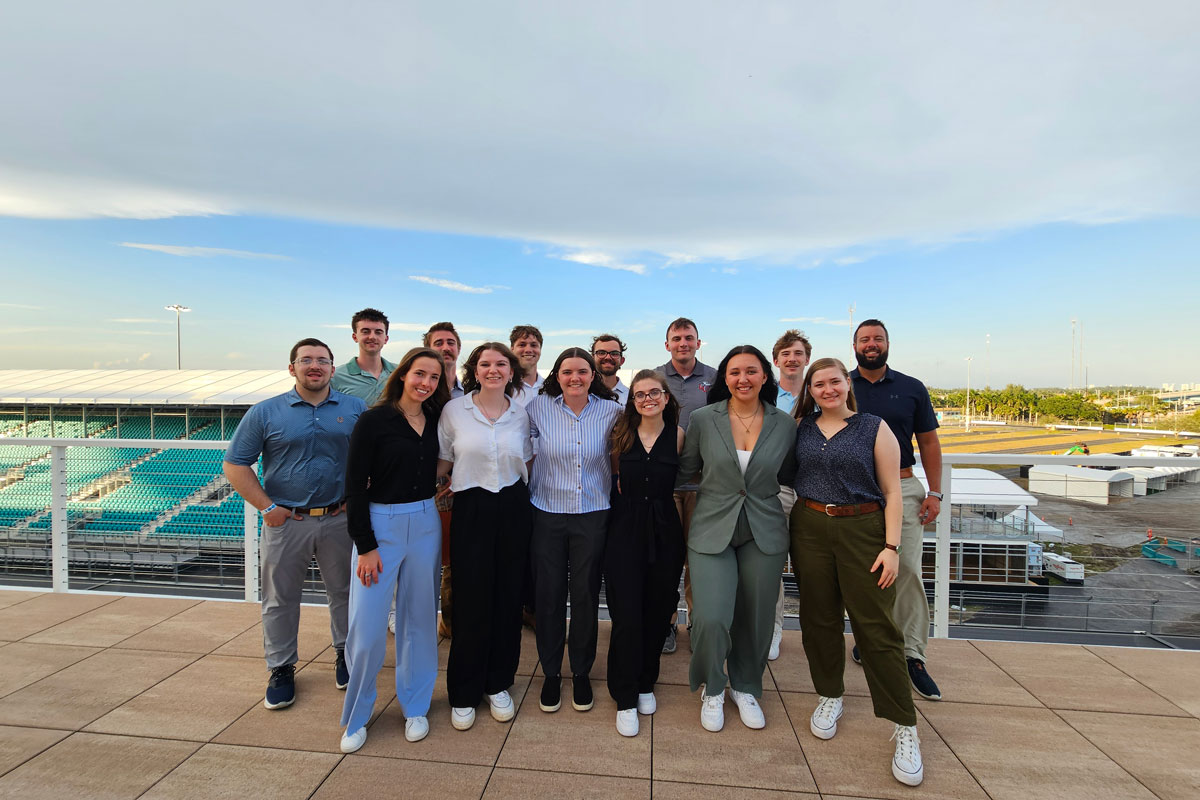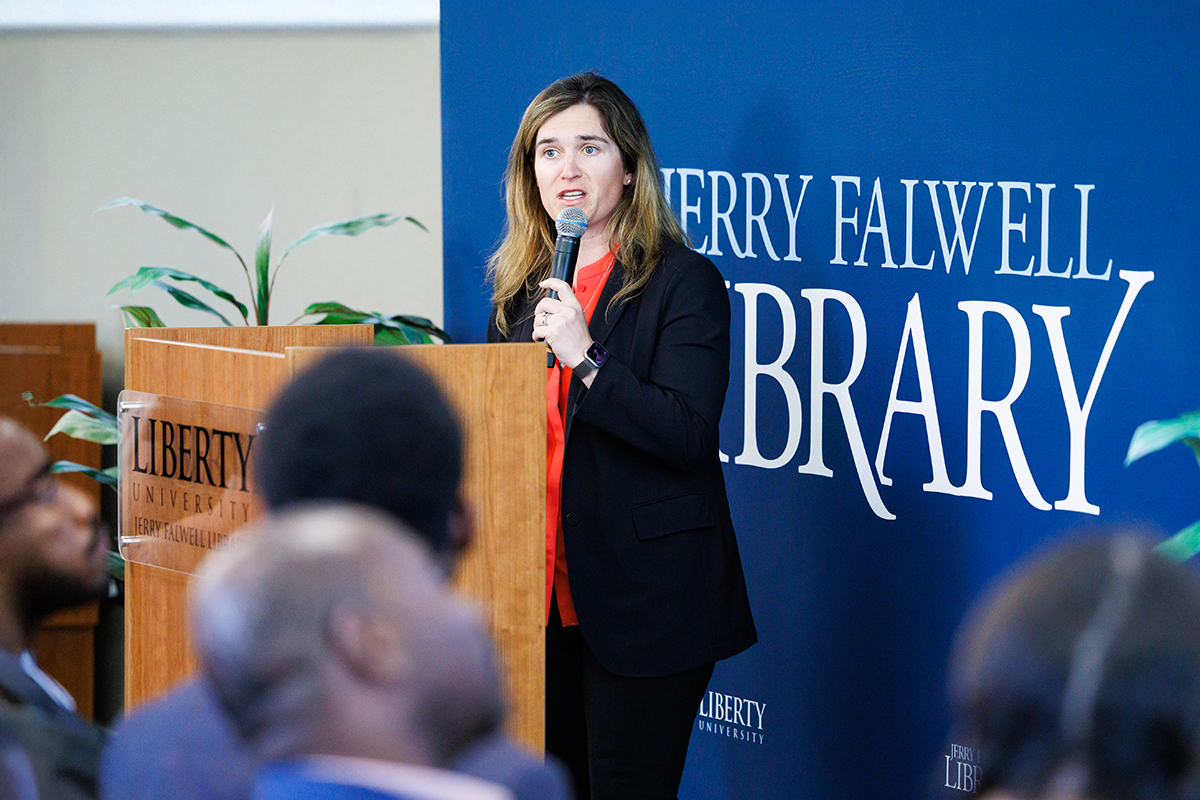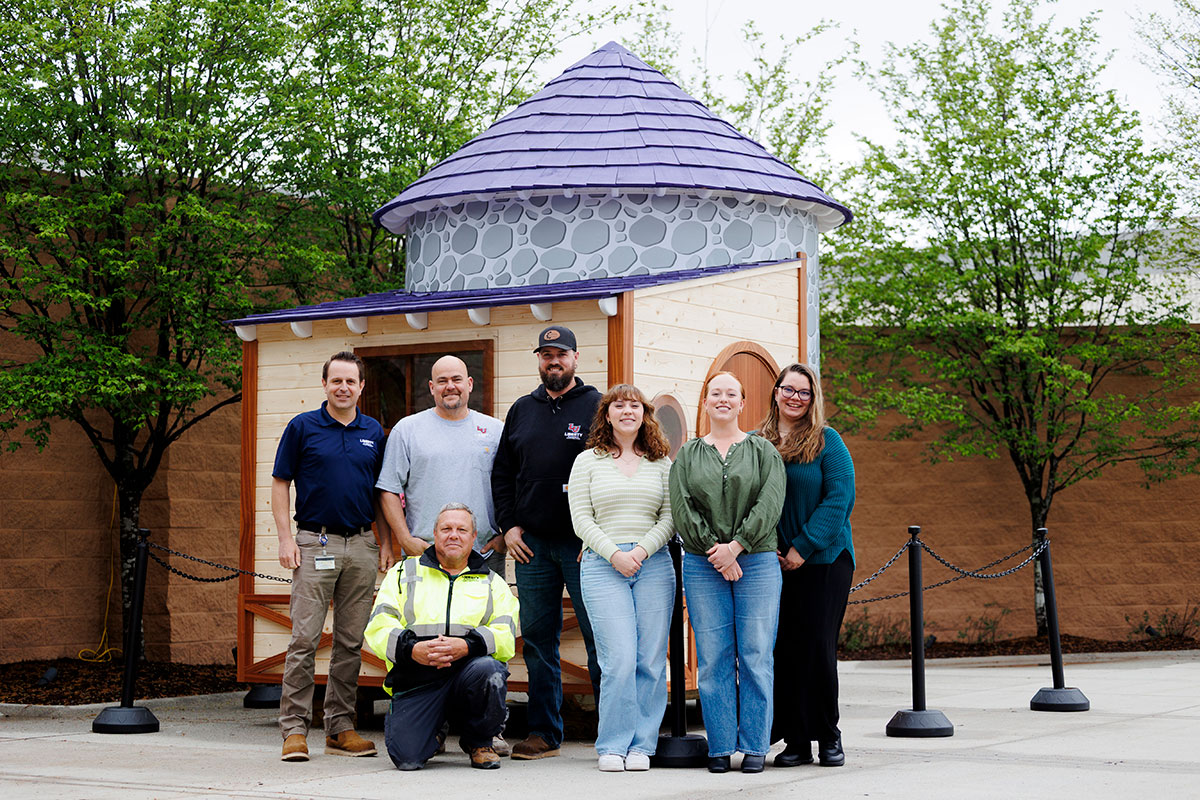Search News Archives
Filter News Articles
Additional Navigation
Government students engage with senior diplomats on recent trips to Ukraine, Finland embassies
November 3, 2023 : By Bryson Gordon - Office of Communications & Public Engagement
A group of 34 students from the Helms School of Government had the opportunity in late October to visit the Ukrainian and Finnish embassies in Washington, D.C., where they engaged in consequential conversations with diplomats as they study to one day step into international relations roles themselves.
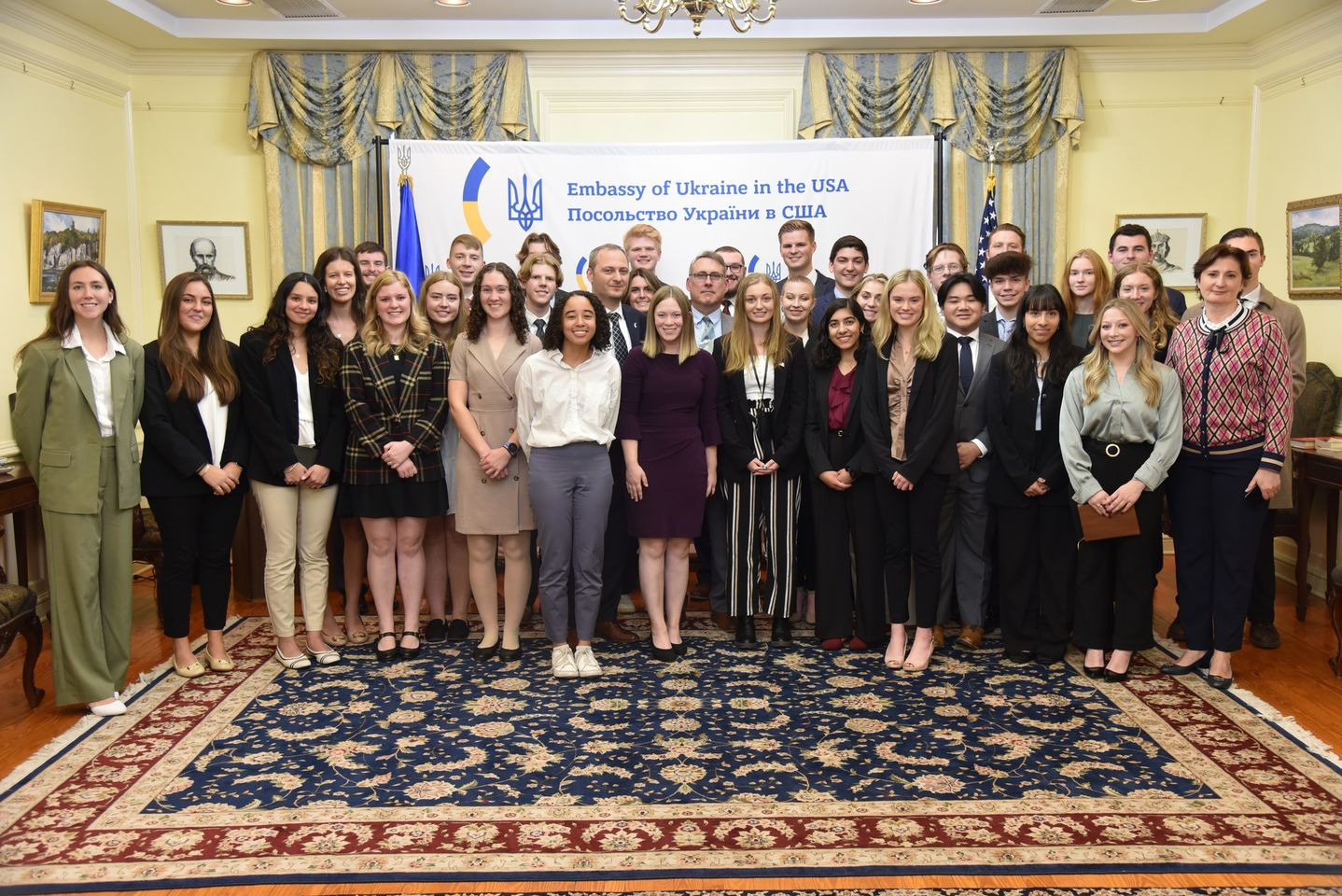
Associate Professor of Government Scott Roenicke, who teaches international relations, said these opportunities give students an “operationalized education.”
“Many of these students will be going up to Washington, D.C. upon graduation … and engaged in jobs involving foreign officials, which will necessitate that they understand how these environments operate,” Roenicke said. “They’ll learn how to maneuver the dangerous shoals of international relations.”
Roenicke joined the Helms School of Government in 2021 following a 30-year career at the Pentagon as Senior Advisor for Russia Affairs to the Chairman of the Joint Chiefs of Staff and as the Director for Russia Affairs at the White House in the National Security Council.
For Lindsey Allen, a junior studying national security, this was her third embassy trip with the School of Government. She said the recent trip reaffirmed the Biblical adage: “Don’t let anyone look down on you because you’re young.”
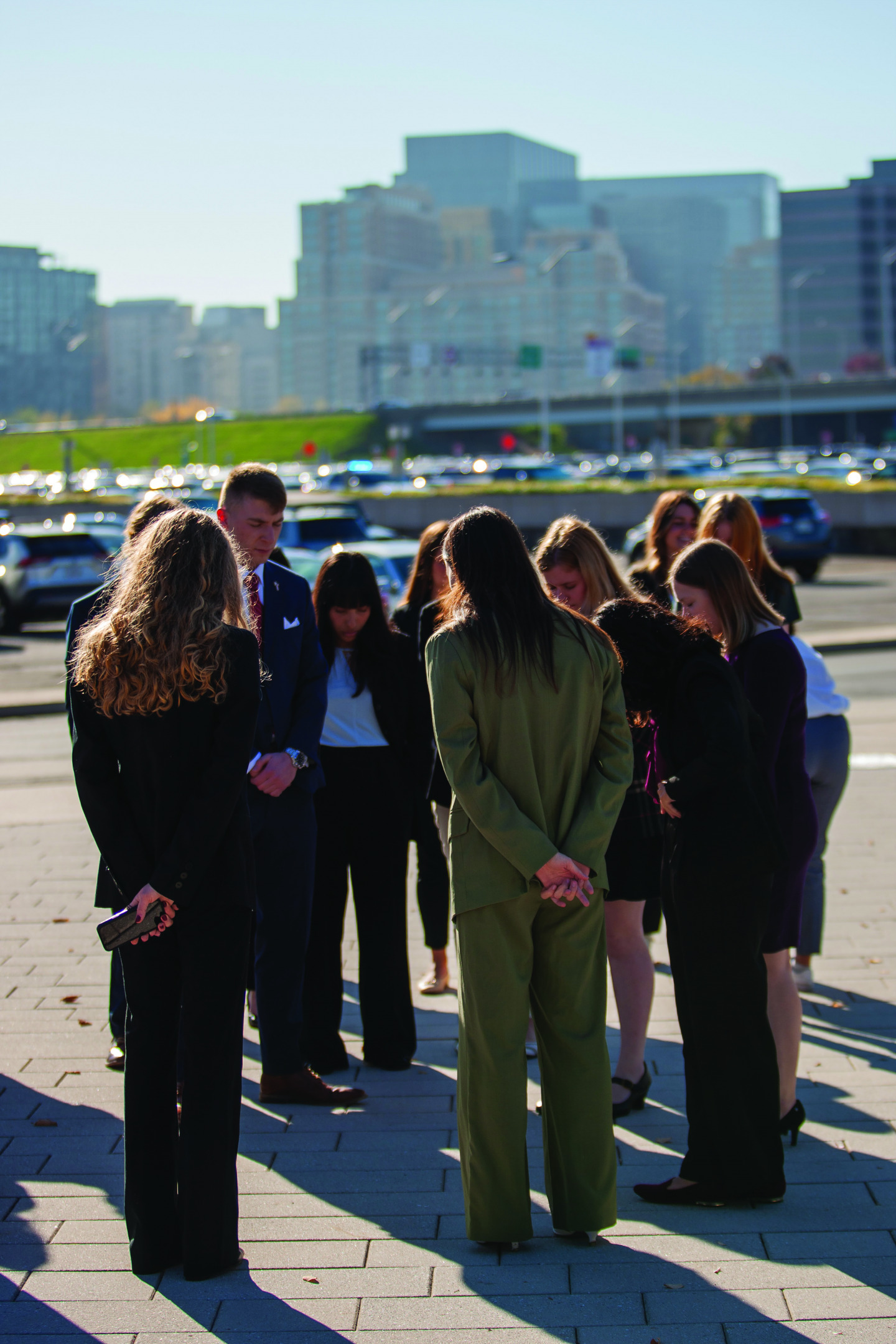
“To be given this opportunity to engage with senior diplomats and to be taken seriously by having them answer our questions with very in-depth answers, it’s just very encouraging,” she said.
She also added that the opportunity allowed them to interact with people who may not share their political ideology, a good practice in professionalism.
“Being able to practice diplomacy and professionalism, see how Professor Roenicke sets an example in those situations, and learn from him about how he engages with different countries and not necessarily agree with everything ideologically, is a lesson that can only be taught outside the classroom. At the end of the day, just seeing how one can have mutual respect for other people and nations is important because God tells us that everyone is created in His image, and so there are things we can certainly learn from them and admire about their culture,” Allen said.
At the Ukraine embassy, students were welcomed into the embassy during a wartime in the country.
Allen said meeting with diplomats from Ukraine was an incredible experience as it helped students learn how to empathize with a nation in crisis.
“You know we’re so blessed with so few problems at home that our culture reenacts wars for recreation, whereas for people in Ukraine, they’re in a fight for their life,” Allen said of the trip. “It was a good experience … being able to put that into perspective and realize how blessed we are in America for the freedoms that we have, and just being able to empathize with Ukraine and being able to pray for them.”
Prior to the trip, the students participated in a high-stress White House meeting simulation, similar to the meetings Roenicke participated in while working in D.C. The simulation, Roenicke said, prepares students to have an informed perspective on the substantive issues headed into the trips.
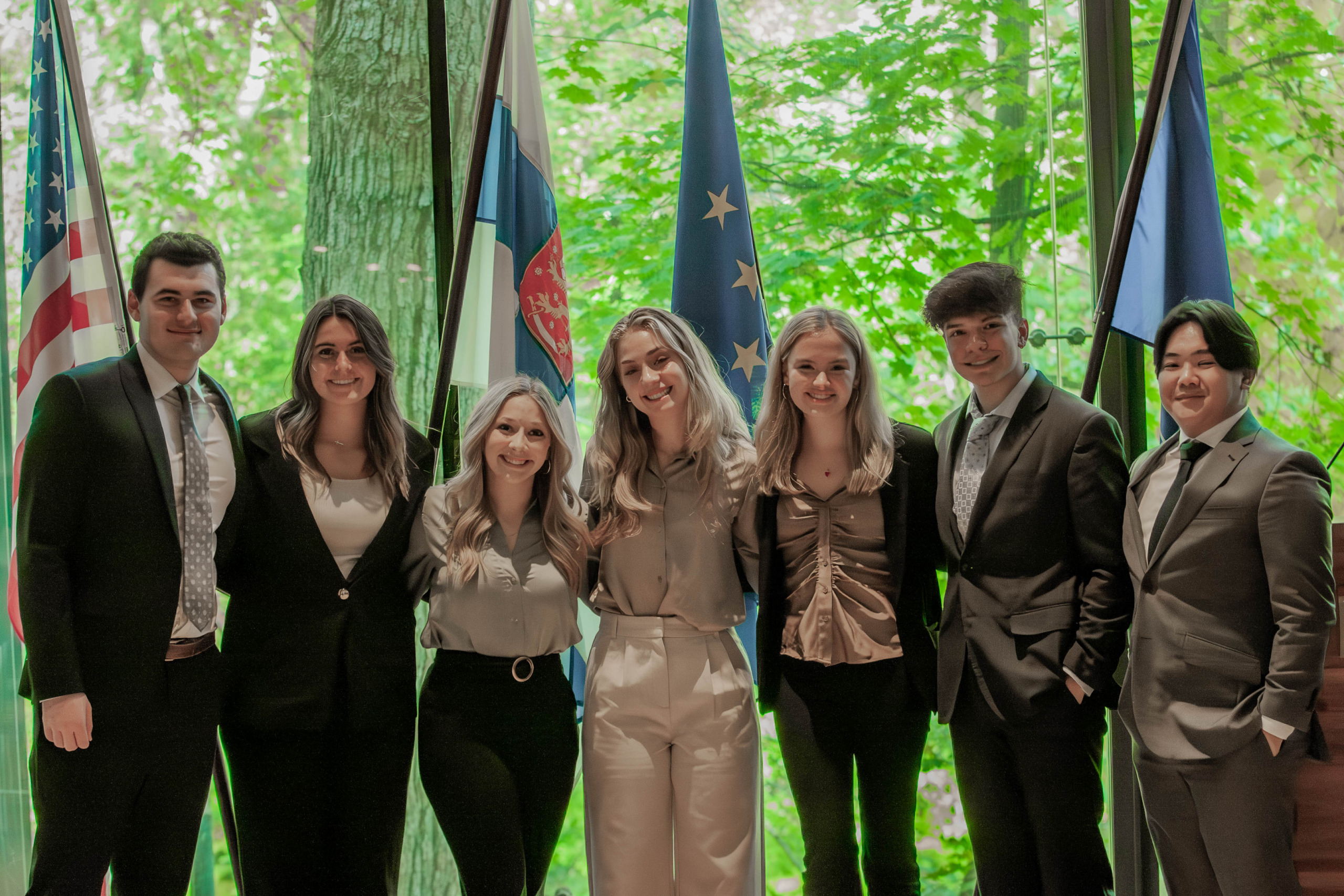
“They can see how foreign policy is made from a governmental perspective because there’s wrangling within the meeting, there’s decision making based on their assigned departmental roles, and they come out of that with a stronger idea of how U.S. foreign policy is made,” he said. “Then we take them to the embassies where they can engage on those exact same challenging issues with diplomats who give them added perspective on how our foreign allies view some of these problems.”
Allen said Roenicke’s hands-on teaching style is valuable for not only the embassy trips but also for preparing students to work in diplomacy one day.
“It’s very interactive and it really brings the students into real-life situations,” Allen said. “Having classes like these where you can actually come up with policy solutions in his government simulation and you can engage with diplomats who are talking about how we can solve these issues. I really love how we’re not just talking about the problems, but we’re also looking at ways we can solve it.”
With his extensive experience in governmental leadership, Roenicke said experiences in problem solving and trips like these stand out on student résumés.
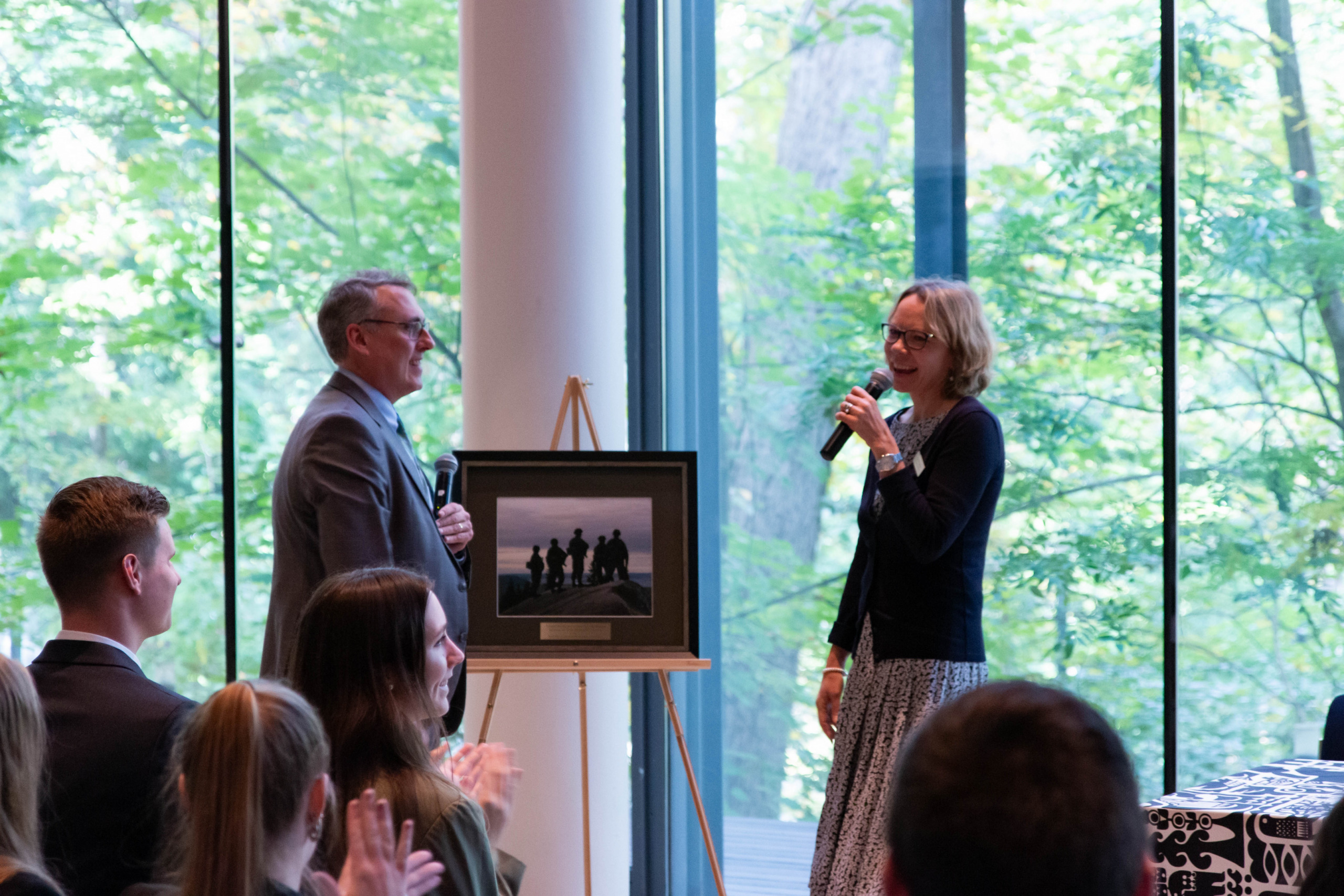
“When I looked at résumés that had that kind of experience reflected, I gravitated towards those, set those aside to address in more depth later,” he said. “These are the kinds of things that will get students noticed and subsequently hired into the government.”
Beyond the embassy trip, Allen said she values all of the opportunities provided to students like herself through the Helms School of Government.
“We have all these opportunities at our fingertips …” she said. “But the biggest thing that has been impactful for me is just seeing how you can be Christian and go into a secular vocation, and still be a light in the darkness and have the joy of the Lord.”
